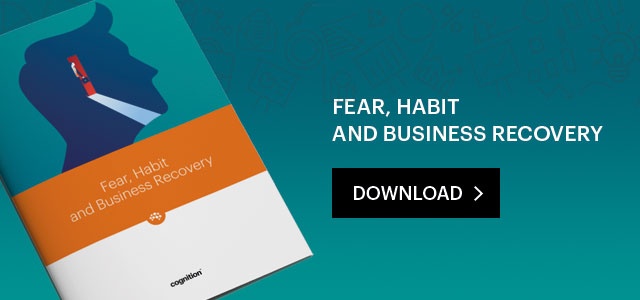Wherever we are, whatever we are doing, whether at work, whether at home… You never know what’s going on in someone else’s life. Always be mindful of this – and have empathy!
Life situations can be viewed in many different ways. Both with or without a sense of empathy. The way you see the world, and the way you deal with these situations can define the person you are and shape the business you want to be known for.
An example of no empathy:
(No workplace empathy)
Manager requests a meeting with a staff member, then tells them, “It’s been the 3rd time in 2 months you’ve made serious mistakes in your work, and the third time it has been raised. One more mistake and we need to talk about your future here.”
RESULT: Unhappy employee, scared of future prospects, unable to focus and be positive or motivated. Improved work/general output is less likely to happen under extreme pressure.
You never know what’s going on in someone's life – always be mindful of this – have empathy!
Simon Sinek calls people caught in this situation, ‘Lies, hides, and fakes’ people, as they can’t be their true self or feel safe and secure in their working environment. They have a very false and fearful persona.
This situation – approached with empathy – could be very different:
(workplace empathy)
A manager requests a meeting with a staff member, then tells them, “It’s been the 3rd time in 2 months you’ve made serious mistakes in your work, and the third time it has been raised. Are you ok? What can I do to help? Is there anything I can personally do to help? We are here to support you - whether it’s work or not work related?
RESULT: The employee feels cared for, part of a team/family, feels safe in their working environment and knows they can always ask for help without judgement or criticism.
Long story short, you never know what’s going on in someone's life – maybe outside factors are influencing behaviour. Maybe a family member has passed, they are having a marriage breakup, have children that are ill, etc. Whatever is big enough to impact on that person's mental wellbeing, work-life-balance, and performance at work is big enough to earn your empathy.
Empathy outside of work
There are also many occasions where you can show more empathy in your day-to-day lives which are not directly work related.
Take a look at the following outside scenarios. Which one are you in these two situations?
Scenario 1:
You are just arriving at the checkout in the supermarket with your full trolley of items and another person arrives at the same time with two items in their basket - but you beat them to the conveyor belt. They appear stressed, annoyed, in a rush, and as so, huffing and puffing at their lack of speed or agility!
Do you carry on to the till? You got there first and it’s not your problem, they should have got there faster. And anyway, you are too busy to care and have important places to be.
Or...
Do you let them go in front of you? What’s five minutes more – they have two items, they look stressed, and maybe this good deed will make their day a little brighter and they too might do a good deed today and pay it forward. Whatever their urgency, you might have helped someone today.
Scenario 2:
You’re driving your car on a motorway. As you pass the next junction a car drives fast along the slip road to join the flow of traffic.
Do you speed up? Stop them from getting in front of you? They’re driving too fast anyway and likely to cause a crash at this rate. Besides, you have places to be and don’t want some crazy driver in your way.
Or...
Do you slow down and let them in? They seem in a rush but who knows why? Less confrontation for all concerned has to be a better choice. And how's one car length behind going to change anything anyway. Less chance of silly accidents, too.
What would you do? Be honest!
As an employer, you are responsible for your people, you owe them an environment that makes them feel safe, happy, empowered, and part of a team that cares for one another.
Those are the businesses which thrive, grow, and attract the best talent. People want to work and grow in companies like this.
The others sit in the bracket that have no workplace empathy (as per the earlier example), where companies have a high turnover of staff and an unhappy team; therefore unhappy customers and a struggling business model.
Be more empathetic at work!
According to Businessolver’s Workplace Empathy Monitor report, empathy has a direct impact on employee productivity, loyalty, and engagement.
Consider these five simple thought processes for workplace empathy:
-
Be kind, be humble: Treat people how you wish to be treated. What makes them happy will in turn make you happier. A culture that spreads kindness and humility is inclined to be a successful one. Be nice to each other and remember smiling is infectious!
-
Listen to others: Listen. No, really listen. Whether you are a manager or colleague, make yourself as available as possible. Listening is such a critical skill. So simple, so effective, yet sometimes so under-valued! If you really listen, the payback is considerable and your team will really thrive
-
Put yourself in someone else's shoes: Before criticising, consider if there is an external factor or personal issue influencing behaviour. You never know what’s going on in someone's life – always be mindful of this – have empathy!
-
Communicate: Show that you understand and have really heard them. Their well-being is a leader’s responsibility and a colleagues and friends human duty
-
Avoid making assumptions: Give the benefit of the doubt before passing judgement on their office behaviour. Never assume things are the way they are simply because our brains are hardwired to believe a certain scenario. And never assume the worst of people.
Some interesting statistics on workplace empathy:
-
77% of workers would be willing to work more hours for a more empathetic workplace; meanwhile, 60% would actually accept a slashed salary for the same. (BusinessSolver)
-
90% of employees said that an employer who recognises the importance of mental health is more likely to retain employees. (Forbes)
-
73% of employees say empathy can be learned (BusinessSolver)
-
Employees believe when organisations provide mental health benefits or programs it can ramp up productivity (48%) and motivation (42%), reduce turnover (39%) and create a sense of belonging in the organisation (36%). (Forbes)
Being empathetic at work brings meaningful, solid returns.
We are all human beings. Be concerned for each other.
While the current crisis is unprecedented, the issues it raises are not – especially the effect of the virus on mental health. Download our guide, "Data Debt, and Mental Health – Coping with Covid-19"
You might also be interested in watching the webinar, "Data, Debt and Mental Health – Coping with Covid-19" with Katie Alpin, Money and Mental Health Policy Institute (Charity) & Dr. Peter Hughes, Cognition.
This webinar covers the psychology, and the invisible burden of mental health from Covid-19 with speakers and experts in psychology, mental health, and financial wellbeing.






